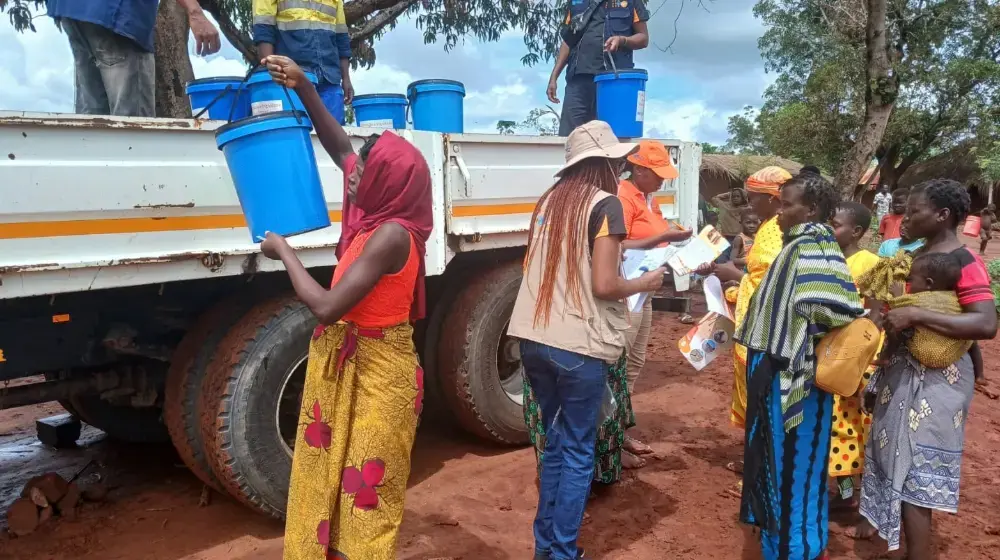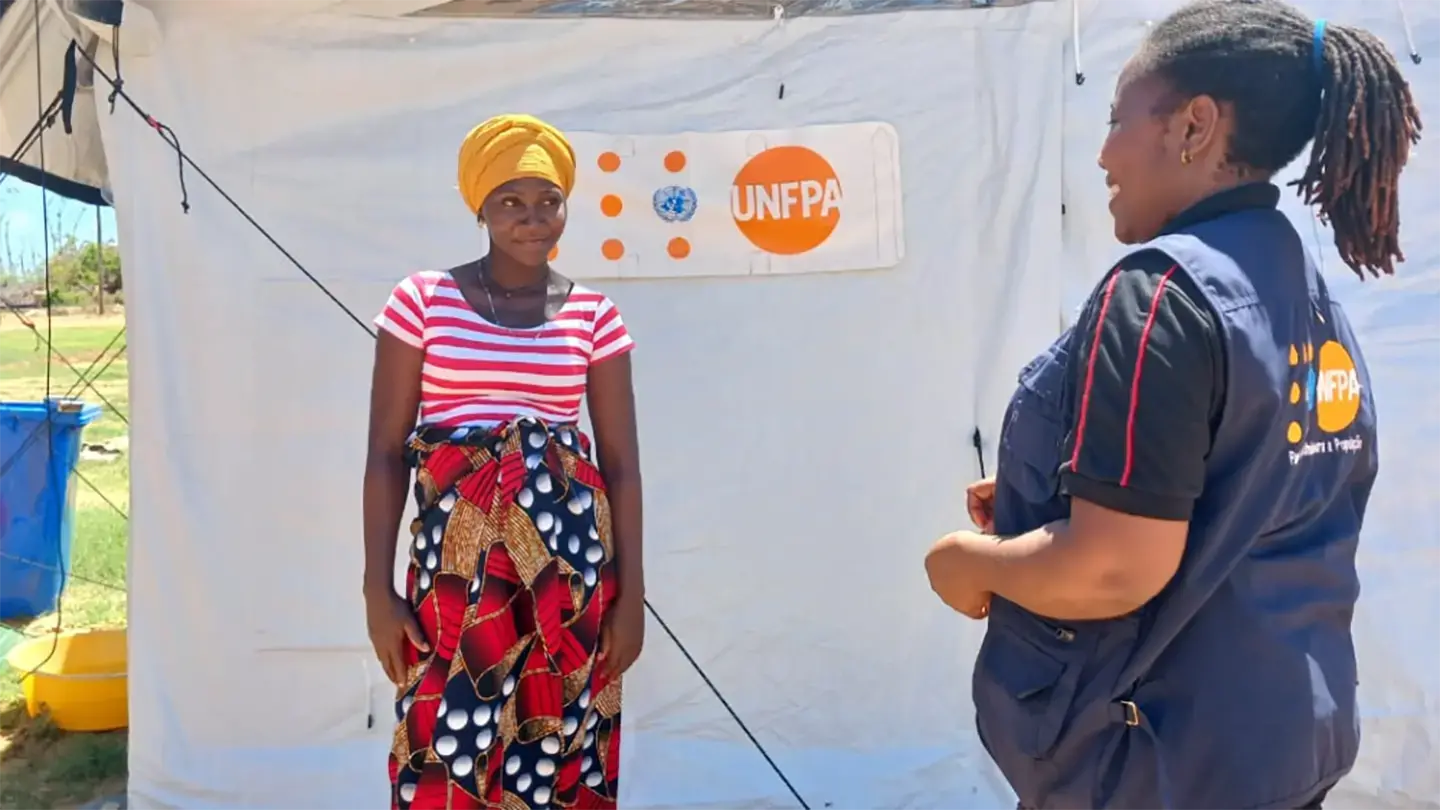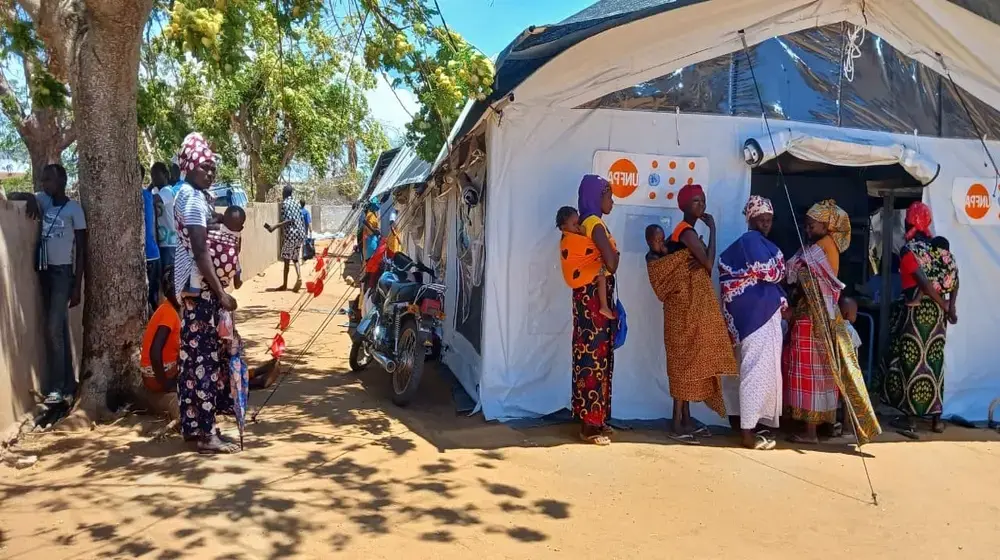More than 47 million women could lose access to contraception, leading to 7 million unintended pregnancies in the coming months.
New York, USA, 27 April 2020 - As the COVID-19 pandemic rages on, the number of women unable to access family planning, facing unintended pregnancies, gender-based violence and other harmful practices could skyrocket by millions of cases in the months ahead, according to data released today by UNFPA, the United Nations sexual and reproductive health agency.
The research reveals the enormous scale of the impact COVID-19 is having on women as health systems become overloaded, facilities close or only provide a limited set of services to women and girls, and many choose to skip important medical checkups through fear of contracting the virus. Global supply chain disruptions may also lead to significant shortages of contraceptives and gender-based violence is expected to soar as women are trapped at home for prolonged periods.
“This new data shows the catastrophic impact that COVID-19 could soon have on women and girls globally. The pandemic is deepening inequalities, and millions more women and girls now risk losing the ability to plan their families and protect their bodies and their health,” said Dr. Natalia Kanem, UNFPA Executive Director. “Women’s reproductive health and rights must be safeguarded at all costs. The services must continue; the supplies must be delivered; and the vulnerable must be protected and supported."
KEY PROJECTIONS:
● 47 million women in 114 low- and middle-income countries may not be able to access modern contraceptives and 7 million unintended pregnancies are expected to occur if the lockdown carries on for 6 months and there are major disruptions to health services. For every 3 months the lockdown continues, up to an additional 2 million women may be unable to use modern contraceptives.
● 31 million additional cases of gender-based violence can be expected to occur if the lockdown continues for at least 6 months. For every 3 months the lockdown continues, an additional 15 million extra cases of gender-based violence are expected.
● Due to the disruption of programmes to prevent female genital mutilation in response to COVID-19, 2 million female genital mutilation cases may occur over the next decade that could have been averted.
● COVID-19 will disrupt efforts to end child marriage, potentially resulting in an additional 13 million child marriages taking place between 2020 and 2030 that could otherwise have been averted.
UNFPA is working with governments and partners to prioritize the needs of women and girls of reproductive age and to respond urgently during the challenging public health emergency. Our priorities are focusing on strengthening health systems, procuring and delivering essential supplies to protect health workers, ensuring access to sexual and reproductive health and gender-based violence services, and promoting risk communication and community engagement.
The research was conducted by UNFPA, with contributions from Avenir Health, Johns Hopkins University (USA) and Victoria University (Australia). Its projections were based upon recent UNFPA research into what will be required to achieve the organization’s goals by 2030. For each estimate, researchers projected the direct impact of COVID-19 on the issue in question and combined it with the disruption to global prevention programmes caused by the pandemic.
● Access the projections at www.unfpa.org
● Access UNFPA’s Global COVID-19 Response Plan here.
About UNFPA
UNFPA is the United Nations sexual and reproductive health agency. Our mission is to deliver a world where every pregnancy is wanted, every childbirth is safe and every young person's potential is fulfilled. We work in developing countries and humanitarian emergencies to make sure women can access family planning, to end preventable maternal deaths and stamp out gender-based violence and harmful practices like female genital mutilation and child marriage.
For media and interview enquiries, please contact:
● Malene Arboe-Rasmussen (based in Copenhagen): +45 6166 1291; arboe-rasmussen@unfpa.org
● Eddie Wright (based in New York): +1 917 831 2074; ewright@unfpa.org





